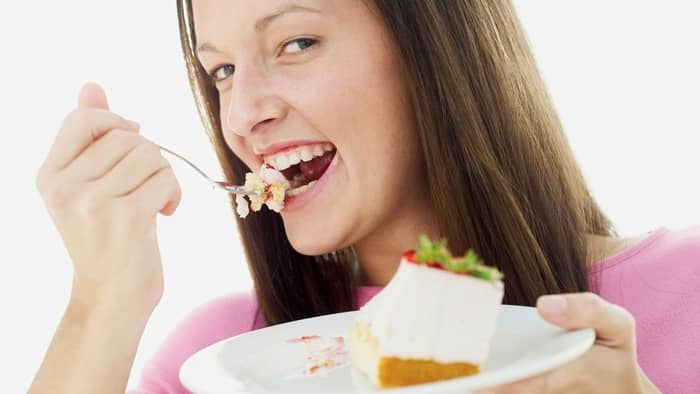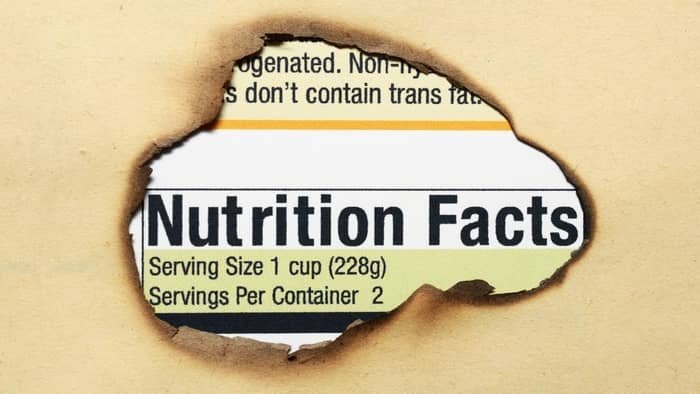Last Updated on March 22, 2022 by Griselda M.
If you are curious about the nutritional value of cheesecake, then this article is for you! Ready to learn all about nutrients of cheesecakes?
Today, we will discuss exactly what will affect the nutrients in cheesecakes and their calorie count. Then, we will look at some general nutritional values and facts about the average cheesecake, so that you can make an educated decision on how much to consume.
Ingredients Used To Make A Cheesecake – How It Affects The Nutritional Value Of Cheesecake
By now, we all know and have come to love this incredible dessert! Cheesecakes come in a wide variety of shapes and sizes. They can vary quite a lot in their flavor and in their texture.
Now, because we are specifically looking at exactly what affects the nutritional value of cheesecakes, we will first start by looking at the ingredients that regular cheesecakes contain.
Cheesecakes are made using a combination of soft fresh cheese, sugar, eggs, and often a dairy-based liquid. They also naturally contain flavoring items like extracts and essences. But, they can also contain fruit coulis and syrups to help add flavor and color.
Soft fresh cheese
Cheesecakes can be made with cream cheese, cottage cheese, or mascarpone. Regardless of which you ultimately use, it always has to be a fresh soft cheese that can be whipped to create a light and airy texture. And, you also preferably have to use full-cream versions of this cheese. It helps add a deliciously creamy and rich texture and flavor.
Eggs
When it comes to the eggs, some cheesecakes only contain egg whites or egg yolks. Most however contain whole large eggs. There isn’t really a perfect substitute or alternative for eggs. Now, it is important to note that unbaked cheesecakes don’t contain any eggs, which naturally will lower their calorie count and change their nutritional make-up.
Sugar
Next, we look at the sugar. More often than not, cheesecakes are made using caster sugar or regular granulated white sugar. And, as you can imagine, sugar has its own set of controversies. It is mainly seen as empty calories, and unfortunately, they contain quite a lot of them.
Dairy-base liquid
Then, we move on to the liquid dairy product used to help adjust the consistency of the cheesecake batter. This can be anything like heavy cream, sour cream, regular milk, or buttermilk.
Flavoring ingredients
And finally, we have some flavoring ingredients. Now, many people often overlook the effects that these ingredients have on the nutritional value and amount of calories in a slice of cheesecake. But, think of it this way.
If you use a flavored syrup to add flavor, it basically consists of just sugar. So naturally, it will add the nutritional value of concentrated liquid sugar.
However, if you add an extract to incorporate a specific flavor, you are adding virtually no nutrients or even calories.
Where Do Calories Come From?
Calories are essentially units of energy. When consumed, your body automatically breaks down food which is then converted into energy. We all need energy to function every day. But, unfortunately, when we don’t use enough of the calories that we consume, this energy is converted into fat, which leads to weight loss and unhealthy side effects.
So, where exactly do the most calories come from? Well, unfortunately for cheesecake lovers, calories are high in ingredients that contain fat, sugars, and carbs. This virtually makes up the entirety of the cheesecake.
Now, the exact amount of calories will depend on which specific ingredients you used. If you used cottage cheese it will have a different calorie count than cream cheese.
Read more about How Many Calories In A Slice Of Strawberry Cheesecake?
Nutritional Value Of Cheesecake
Now, as you can see from our breakdown above, there are quite a few factors that will affect the ultimate nutritional value of cheesecake. Unfortunately, it is extremely hard to give a general and average summary for the thousands of variations that you can make.
So, instead, we have worked from a regular cheesecake recipe. A traditional cheesecake is made from a combination of cream cheese, sugar, eggs, and a dairy-based liquid (most likely cream).
When looking at these cheesecakes, you will see that they consist largely of fat and carbs. Some cheesecakes are essentially 70% fat in total! Then, these baked goods also contain a very high amount of sugar and a surprising amount of protein. But, then again, many people forget that eggs are basically pure protein!
When it comes to specific nutrients like vitamins and minerals, cheesecakes contain a ton of vitamin A, vitamin B2, and B12. It is also high in phosphorus, selenium, and sodium.
And, on average, a slice of cheesecake can easily contain up to 500 calories. But, this is also dependent on the size of the slice you are serving.
Cheesecake Nutritional Facts
- Cheesecakes contain roughly between 300-500 calories per slice. This is largely dependent on the ingredients used to make the cheesecake and the size of the slice.
- These baked goods consist mainly of carbs and fats. Carbs are a form of sugar. And the fat naturally comes from the full-fat cream cheese (or soft cheese) that is used in the recipe.
- Cheesecakes can easily contain up to 25% protein, thanks to the addition of eggs. Especially when making New York cheesecakes that contains a ton of eggs, you can expect to get more protein.
- Unfortunately, cheesecakes mainly contain saturated fats, which are bad fats. This fat can increase your cholesterol levels which increases your risk of heart diseases and even a having a stroke.
Bottom Line – Nutritional Value Of Cheesecake
So, the bottom line on the nutritional value of cheesecake and whether or not it can be considered to be healthy is no. Cheesecakes consist of large amounts of fats (specifically saturated fats) and carbohydrates.
And, unfortunately, it doesn’t contain a ton of minerals seeing as sugar is considered to be a bunch of empty calories. And, while it does contain large amounts of protein, the cons far outweigh the pros.
So, as always, just consume cheesecake (or any unhealthy snack) in moderation. And, make sure that your calorie intake is always smaller than the number of calories you burn. This way you can maintain a healthy balanced lifestyle.
If you enjoyed this article or have any questions for us, feel free to let us know in the comments below.
FAQs
Is cheesecake nutritious?
Unfortunately, while cheesecake does contain some nutrients, it is actually very unhealthy.. It mainly consists of empty calories, which refer to calories that don;t carry vitamins and minerals. So, you can largely expect fat and carbs from these baked goods.
What nutrients are in cheesecake?
The main vitamins and minerals you will find in cheesecakes include vitamin A, B2, and B12. Also some phosphorus, selenium, and sodium. There are other macro-traces of nutrients, but not enough to gain any benefits from.
Does cheesecake have any protein in it?
Only baked cheesecakes that contains eggs will have protein in them. Eggs primarily consists of protein. So, the more eggs the recipe contains the more protein it will have.

Lindy Van Schalkwyk is a culinary specialist with a background in Advanced Cooking, Advanced Pâtisserie, Media Communications and Nutrition. She has gained invaluable experience in the culinary industry having worked in some of the top restaurants in Africa in 2016 and 2017. Her expertise in nutrition has enabled her to develop recipes for special dietary needs. In 2018, Lindy began working in the Food Media industry, focusing on recipe development, recipe writing, food writing and food styling.


